
Edgar Allan Poe
Brook and Sarah discuss Edgar Allan Poe, the grandfather of American detective novels and his enduring legacy. Poe's works referenced (in order of mention) “The Raven” (1845) ”Murders in the Rue Morgue” (1841) “The Mystery of Marie Rogêt” (1842)
Others' works referenced (in order of mention) McAlpine, Gordon: The Misadventures of Edgar and Allan Poe Series Snicket, Lemony: A Series of Unfortunate Events The Simpsons
Resources Cody, Sherwin The Story of Edgar Allan Poe (2019) Complete Stories and Poems of Edgar Allan Poe (1966). Doubleday and Co. http://airshipdaily.com/blog/09222014-edgar-allan-poe-virginia-eliza-clemm https://elifnotes.com/edgar-allan-poe-the-master-of-mystery-and-macabre/ https://poestories.com For more information, visit cluedinmystery.com Follow us on Instagram @cluedinmystery Contact us: hello@cluedinmystery.com Music: Signs To Nowhere by Shane Ivers – //www.silvermansound.com
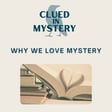
![[re-release] Dorothy L. Sayers image](https://media.zencastr.com/cdn-cgi/image/width=112,quality=85/image-files/61e1c276e3ec42007857cff9/0c9f0c0f-65b5-423a-a129-9414d2b8819e.jpg)
![[Re-release] Christie's Characters: Harley Quin image](https://media.zencastr.com/cdn-cgi/image/width=112,quality=85/image-files/61e1c276e3ec42007857cff9/19b66ded-f629-44f5-8280-f8a4afd4697c.jpg)
![[Re-release] Magic and Mystery with Tom Mead image](https://media.zencastr.com/cdn-cgi/image/width=112,quality=85/image-files/61e1c276e3ec42007857cff9/bf587b93-b2a8-41f6-af97-4772e2c0caa2.jpg)
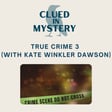
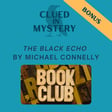
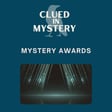
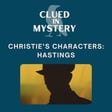
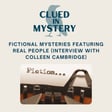
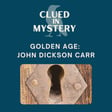

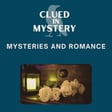
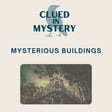
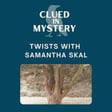
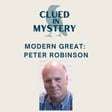
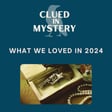
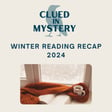
![[Re-release] Celebrity Authors image](https://media.zencastr.com/cdn-cgi/image/width=112,quality=85/image-files/61e1c276e3ec42007857cff9/6bf85c27-5b4b-472c-9f00-1aceb11c14f7.jpg)
![[Re-release] Modern Greats: Sue Grafton image](https://media.zencastr.com/cdn-cgi/image/width=112,quality=85/image-files/61e1c276e3ec42007857cff9/6f1dd042-325d-4743-a520-2db110a960b9.jpg)
![[Re-release] Mysteries in Unusual Formats image](https://media.zencastr.com/cdn-cgi/image/width=112,quality=85/image-files/61e1c276e3ec42007857cff9/d8f895fc-5446-494f-b2f8-5a3f6b131e98.jpg)